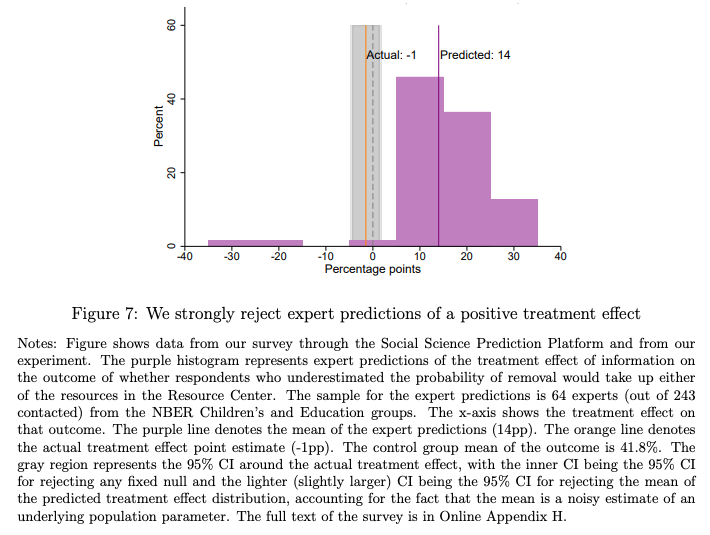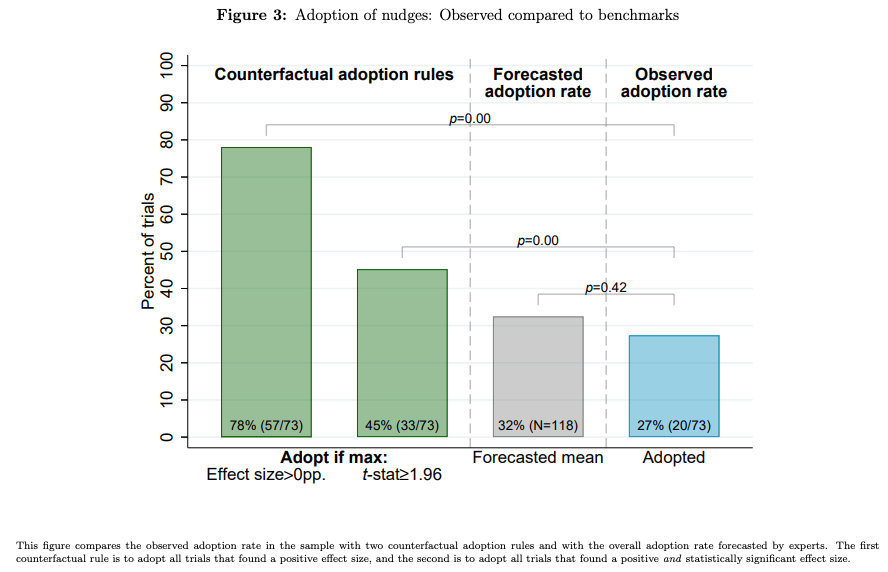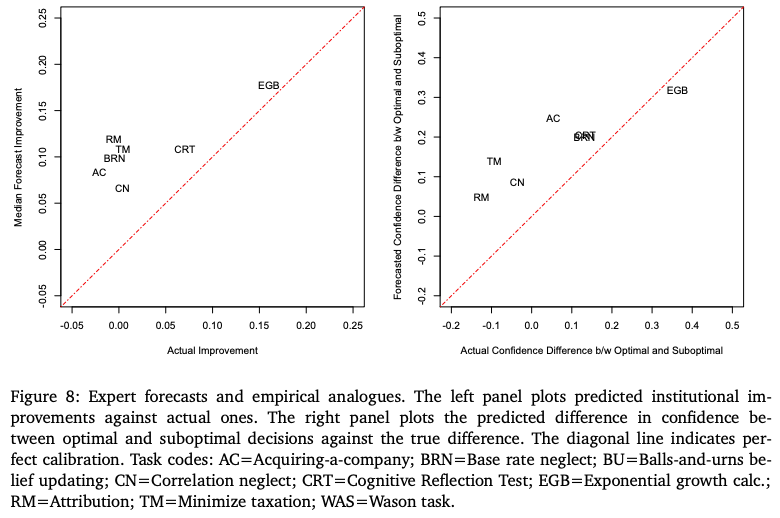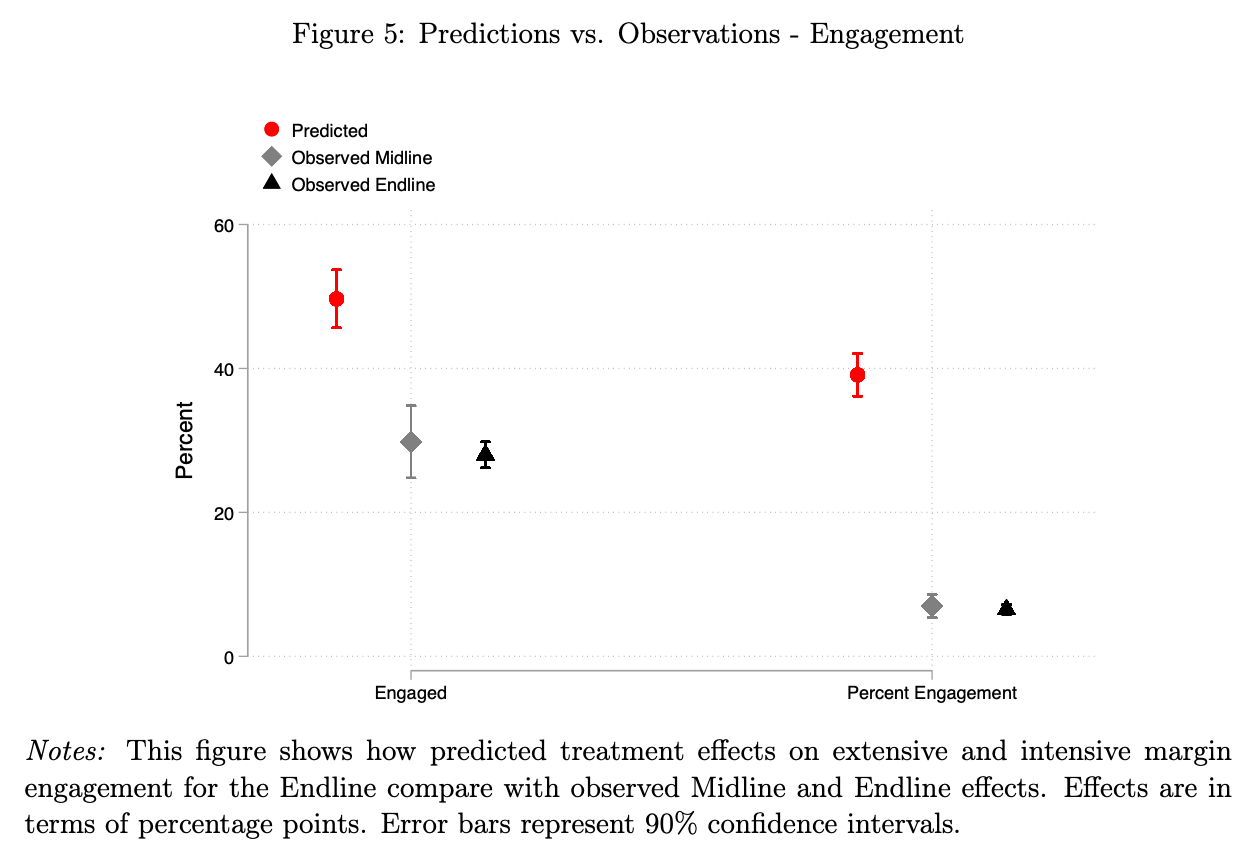Example Research using the SSPP
This is a showcase of some prior projects on the platform and how the elicited forecasts were included in the final research paper. Feel free to draw inspiration from these!
This is a showcase of some prior projects on the platform and how the elicited forecasts were included in the final research paper. Feel free to draw inspiration from these!

Deshpande and Dizon-Ross investigated whether the amount of expected government benefits a child will receive in adulthood affects the parental investment in the child’s human capital. They presented “randomly selected families with the predicted likelihood that their child will receive SSI benefits in adulthood,” effectively decreasing the amount of benefits they expected in adulthood. They found no evidence that this increases parental investment in children, despite expert forecasts predicting a notable increase in investment.

DellaVigna et al. investigated whether governments adopt the results of their RCTs. They found that the forecasted adoption rate by experts was not significantly different from the observed adoption rate. When they broke it down to more specific predictions such as the impact of effect size and statistical significance, expert accuracy varied.

Enke et al. studied the influence of behavioral biases on aggregate outcomes in institutions. They found that “experts generally overpredict both the magnitude of institutional improvement and the degree of confidence calibration…(Additionally,) forecasts are excessively compressed relative to the truth: experts predict that the degree of confidence calibration and institutional improvement is more similar across tasks than is actually the case. At the same time, while the sample of nine tasks is very small, it does appear that …(the experts) have a reasonably good qualitative sense of on which tasks experimental subjects are more or less well-calibrated.”

Mehmood investigates the effectiveness of SMS-based business trainings to remotely support microentrepreneurs in low-income settings due to their scalability and low costs. He found that some of the positive effects for entrepreneurs disappear twelve months after the intervention, contrary to expert predictions. The study’s findings suggest that, despite their widespread use, SMS-based trainings are unlikely to be effective in the long term for micro-entrepreneurs.